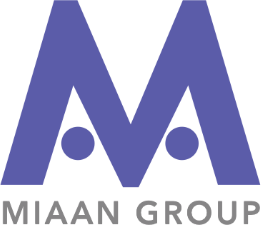We, the undersigned rights organisations, are gravely alarmed by reports and documented evidence of near total Internet shutdowns in the Iranian cities of Ahvaz, Behbahan and Isfahan. Moreover, having repeatedly imposed internet shutdowns in tandem with suppression of mass demonstrations, we call on the Iranian government to end this practice as a whole and uphold international internet freedom standards.
Starting on November 9th, 2021, farmers in Isfahan gathered and began camping in the Zayanderud River—the main water source, which has run dry—to protest against extreme water shortages. The protest soon drew in other cities and expanded all throughout not only Isfahan province but the neighboring province of Chaharmahal and Bakhtiari, including the capital city of Shahr-e Kord. On November 19th, 2021, thousands of people joined the protests in Isfahan according to Iran’s state TV.
After two weeks of a peaceful demonstration, on Friday, 26 November 2021, a near total internet shutdown on mobile data began. That day an unidentified group attacked the Zayanderud river encampment, setting fire to their tents and beating protestors. Videos posted to social media claim the group were police, while Iranian state media called them a group of “thugs.” Quickly thereafter Iranian police tried to forcefully disperse the peaceful protestors, an internet shutdown was imposed, and reportedly 67 people were arrested.
The day prior, 25 of November at around 10 am, all mobile operators also shut off mobile data for almost 24 hours after an Instagram account posted a simple call for water protests in the city of Ahvaz. The incident came less than six months after the last mobile data shut-down in Ahvaz in June of 2021—also in response to protests over water shortages.
Since December 2018, Iran has shut down the internet eight times—four of which in 2021 and all of which in direct response to protests. In some instances these shutdowns correspond to periods in which, according to human rights groups, Iranian police used unlawful force, including lethal force, against protestors. This pattern of government-led data restrictions to cut off communication channels and prevent peaceable assembly is too dire to ignore.
Iranian authorities must immediately stop imposing any and all shutdowns and other internet disruptions to quell peaceful dissent and must ensure that people can access the internet freely and securely. They must also end their unlawful use of excessive force against protesters and ensure that the people’s right to assemble is guaranteed in law and in practice.
The United Nations’ Human Rights Council Resolution 44/12 on freedom of opinion and expression (2020) strongly condemns Internet shutdowns and calls on states to refrain from such practices. More specifically, Resolution 44/20 on protests calls on states to refrain from ordering blanket Internet shutdowns and from blocking websites and platforms during protests or key political moments. Thus, the UN Secretary General’s Roadmap for Digital Cooperation declares, “Blanket Internet shutdowns and generic blocking and filtering of services are considered by United Nations human rights mechanisms to be in violation of international human rights law.”
Iran must enact policies, practices, and legislation in line with international human rights law that recognizes the fundamental role that the internet plays in the exercise of human rights and guards against shutdowns. It must acknowledge that restricting access to the Internet is a serious violation of international human rights, in particular freedom of expression and the right to protest within the ICCPR, of which Iran is a signatory. The authorities must ensure Iran’s citzens and residents can enjoy these rights without discrimination or impediment.
Signatories:
The Miaan Group
Youths and Environmental Advocacy Centre (YEAC) Nigeria
Taraaz
Ideas Beyond Borders
Organization of the Justice Campaign Open Net Association (Korea)
Human Rights Activists in Iran (HRA)
Kijiji Yeetu (Kenya)
Access Now
Wikimedia France
Media Foundation for West Africa (MFWA)
International Press Centre (IPC)
Internet Protection Society (Russia)
Centre for Human Rights and Rehabilitation (CHRR)
The Tor Project
PEN America
Digital Rights Kashmir
SOAP
Africa Freedom of Information Centre (AFIC)
Global Voices
AfricTivistes
Manushya Foundation
Centre for Media Studies and Peacebuilding (CEMESP)

